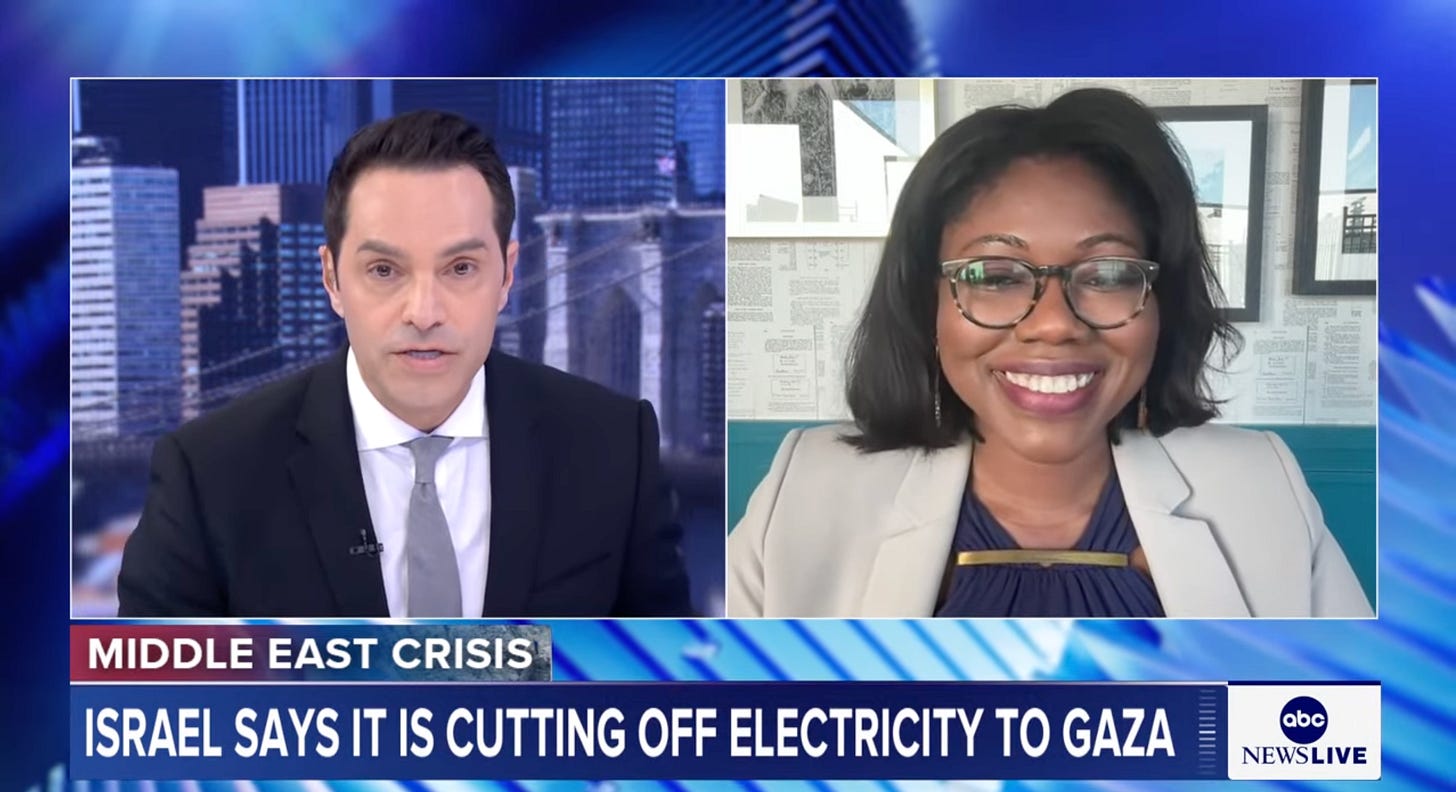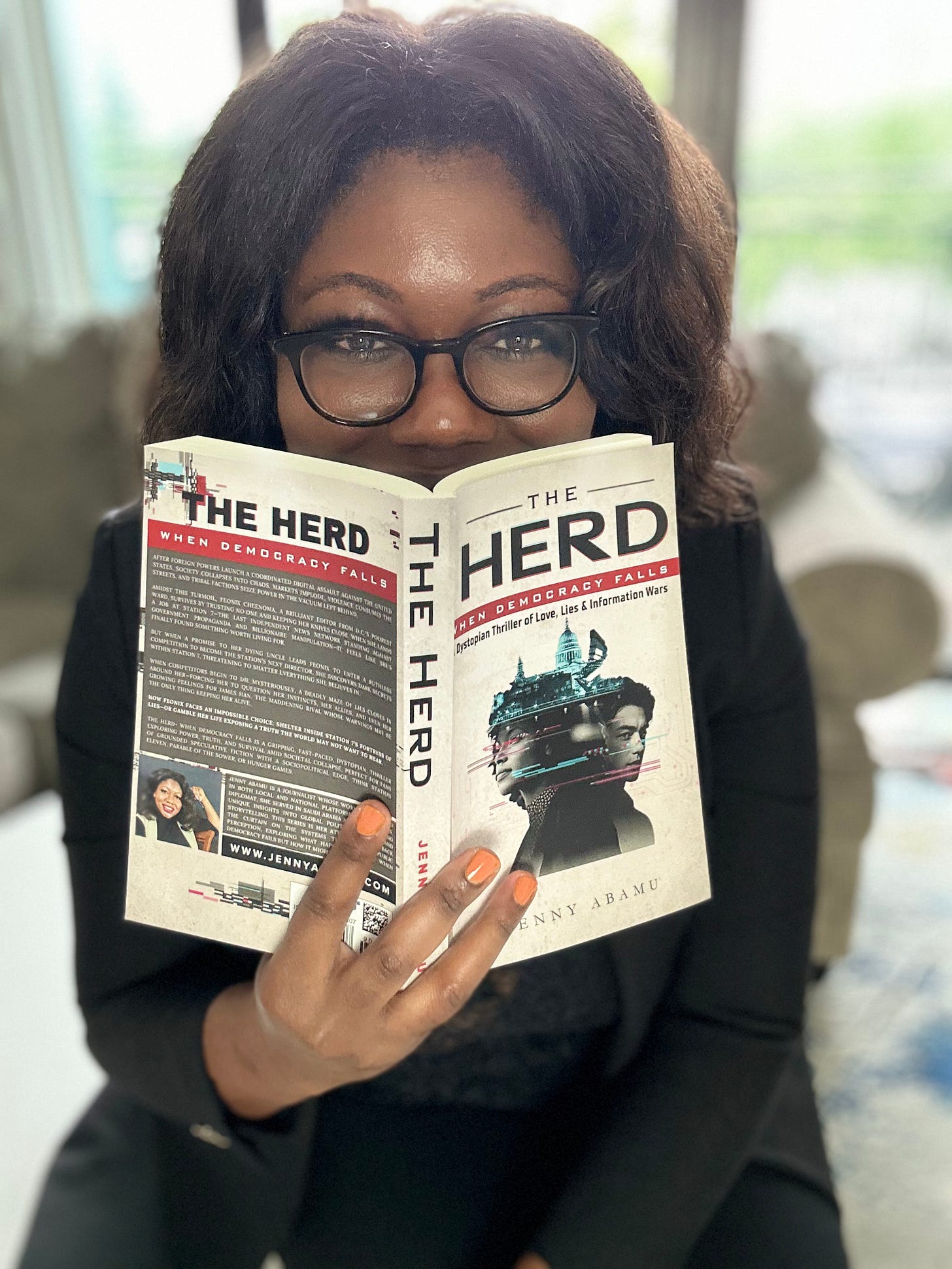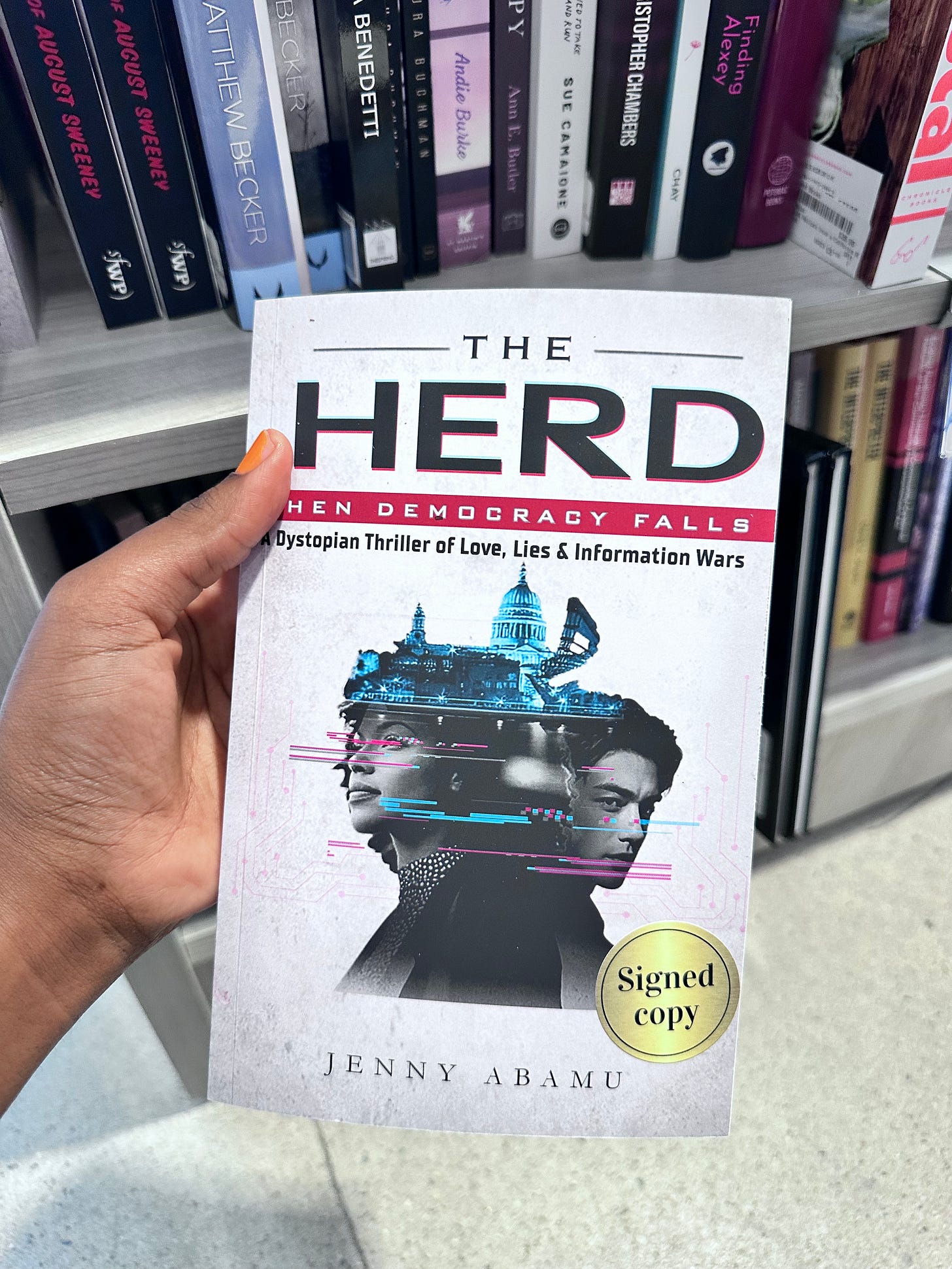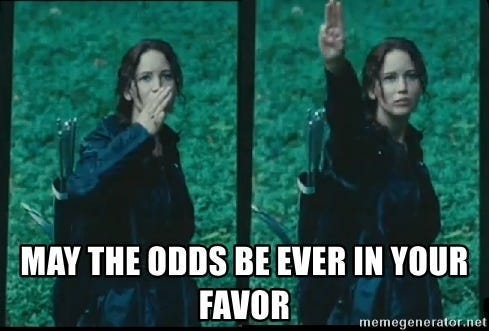"The Media" Isn't What You Think It Is
After talking with a Gen Z podcaster, I want to share 3 media truths insiders understand. Also, big 'The Herd' news below!

I was recently interviewed by a Gen Z podcaster on current affairs issues. One of the interesting topics she brought up was how shocked she was about the media's tone toward President Donald Trump. During his first term, she felt the media was super aggressive, almost dismissive of him as president. And now? She feels like the tone is completely different— way more tampered down. She's trying to wrap her head around this big shift, and it got me thinking about some larger points worth sharing.
1. ‘The Media’ is Not the Cabal You Imagine
A lot of people talk about "the media" as if it's one big cabal of people negotiating in some back room, making decisions together, like the New York Times and Washington Post folks are all hanging out and plotting their next move.
That's not the case at all. The media isn't collaborative— it's competitive as hell.
People within that space are constantly biting to have whatever story first, whatever story fastest, whatever story told with more nuance and depth. It's a very competitive space where people (often colleagues within the same newsroom) are jockeying to be seen.
As a reporter, you're constantly watching others who cover the same beat you do, hoping they don't get something you missed, especially something your particular audience would care about. You'd look less sharp if they got it and you didn't! Could you imagine actually collaborating across organizations when it's that cutthroat?
Some media organizations are trying to figure out ways to be more collaborative by finding niches where they can serve audiences others aren't. But for the most part, that's just not happening.
2. The Audience Has Way More Power Than You Think
Different media organizations have completely different types of audiences. If you're at Politico, your audience is usually Washington insiders who really want to know the nuts and bolts: who's there, who's behind, who's leading the campaign, who the campaign strategist is, who showed up at which political fundraising event. All these details mean something to the Politico reader, it helps them navigate that intricate Washington world.
To the average NPR listener? That's a very different audience. That general person doesn't need to know who went to what party sponsoring which political event every time. They may want to generally know something happened, but you have to be responsive to what your specific audience wants.
And media organizations also take major cues from elections about what their audience needs to hear or know. If they see the country swinging right (or left), their rhetoric will match what they believe their audience is becoming. Because you can't be one place while your audience is somewhere completely different, you'll lose them.
Look at what happened with coverage of the Israel-Gaza war. The coverage swung wildly. And that wasn't necessarily because media people wanted it to, but because audience members responded with vile when they felt things went wrong. I was on ABC once, and the host said something people were offended by. I received so many emails about this. I know it was coordinated, but people were passionate.
You end up treading very lightly knowing the audience could get you canceled. Depending on what your audience is generally made of, one audience may be more likely to cancel you than another. And that changes how coverage is done.
It’s basically how the media does ‘customer service.’
3. The Herd Mentality Is Actually FOMO
I do think the media has a bit of a herd mentality. But I think it comes from not wanting to miss out.
Like I mentioned earlier, if you're a reporter and someone gets a fact or detail or story that feels more important than what you're doing, you're going to feel left out and a little off your game.
So you want to make sure whatever you pick is the most resonant thing at that moment for your audience. And that leads to the herd mentality because sometimes you can't just say, "hey, you do this story, I'll do that one." Because if that person's story gets thousands of clicks and yours gets like 50, that's not going to work for your bosses. That could put you in a precarious position.
You're going to make sure you get that big thing. And that often leads to us all covering the same thing in the same way so we're not missing out. There's a bit of FOMO in it. And sometimes a bit of cowardice too. But it's complicated and still driven by audience more than any kind of collaborative spirit.
What This All Means?
So bringing this back to that podcaster's question about the shift in Trump coverage – when you see these big swings in tone, it's not that editors across the country had a meeting and decided "okay, new approach." It's that thousands of individual journalists and editors are all responding to the same audience signals, the same metrics, the same fear of being out of step.
The media ecosystem is messy, competitive, and way more reactive than most people realize. Understanding that doesn't excuse its problems, but it does help explain why coverage evolves in ways that sometimes feel strange from the outside. It's not the conspiracy some imagine, it's just the chaotic reality of a business trying to keep up with what its customers want.
The Herd World- Big News Alert!
The Herd- When Democracy Falls is Finally in a Bookstore!
The Herd- When Democracy Falls is officially stocked at Wonderland Bookstore in Bethesda, MD! I went there this week to sign copies—such an incredible feeling seeing my book on actual shelves.
I am still revising book two. I originally thought the manuscript would wrap up around 60,000 words... I'm now deep in revision hell at 81,000 words (prayers appreciated, y'all).
Also just launched my new author website where you can order directly from me (signed copies through Stripe only). Of course, the book's also available at Barnes & Noble and other retailers if you're boycotting Amazon for whatever reason. So thankful for all your support through this journey!
Subscribe and Share
I hope you found this newsletter helpful and engaging. Please share with any friends or family you think would be interested and feel free to buy me a coffee by subscribing if you got some use out of it.
Follow me on Instagram too!
And here is my LinkedIn.






This is so sharp and absolutely spot on, especially in breaking down how much audience pressure shapes coverage more than we like to admit. I do think the “herd mentality” hits hardest in political journalism, mainly in DC, where access and peer validation quietly become their own kind of editors. It’s less about bias and more about self-preservation in a system that rewards sameness. Symptomatic of a power problem that plagues other places too.